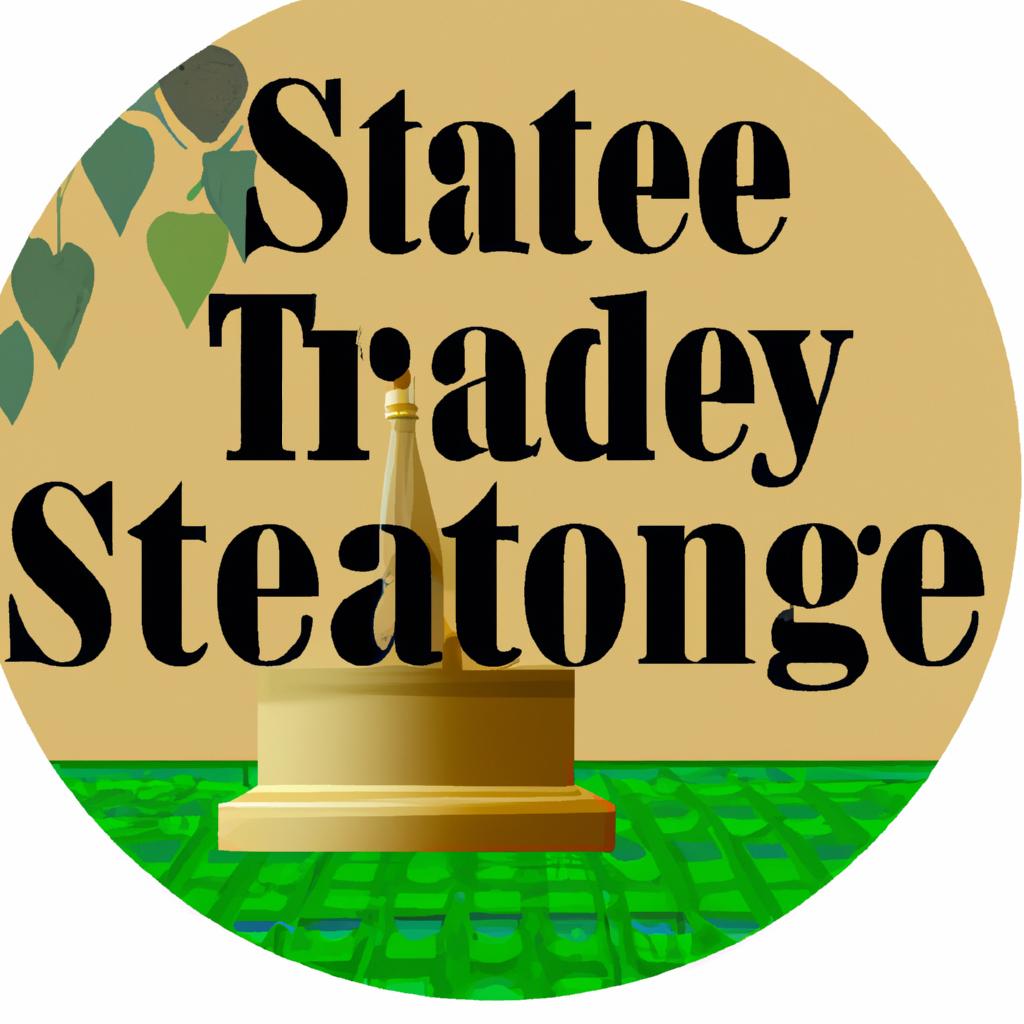In the intricate world of estate planning and probate, the process of organizing an estate sale stands as a pivotal moment in the efficient and effective administration of a deceased individual’s assets. As seasoned professionals in the field, Morgan Legal Group in New York City has honed the art of guiding individuals through the labyrinthine tasks that accompany the settlement of an estate. In this article, we will illuminate the essential steps and considerations necessary to successfully orchestrate an estate sale, ensuring that the deceased’s assets are properly distributed and their legacy preserved.
Key Considerations Before Planning an Estate Sale
Estate sales can be a complex and emotional process, so it is crucial to consider all key factors before planning one. One important consideration is the timing of the sale. It is essential to choose a time that is convenient for potential buyers and allows for ample preparation. Additionally, understanding the value of the items being sold is crucial. Conducting a thorough appraisal of each item can help ensure fair pricing and maximize profits.
Another key consideration is organizing the sale effectively. This includes categorizing items, creating an inventory list, and determining how to display items for sale. Proper advertising is also essential to attract a larger pool of potential buyers. Utilizing social media, local classifieds, and estate sale websites can help spread the word about the sale. By carefully considering these factors, you can ensure a successful and profitable estate sale.

Best Practices for Pricing and Valuing Estate Items
To successfully organize an estate sale, it is crucial to follow . One key aspect is to conduct thorough research on the market value of each item to ensure fair pricing. Utilize professional appraisers or online resources to determine the current worth of antiques, jewelry, furniture, and other valuable possessions. By accurately pricing items, you increase the likelihood of attracting potential buyers and maximizing profits for the estate.
Another important consideration is to strategically organize the layout of the sale. Group similar items together and create visually appealing displays to attract buyers’ attention. Utilize signage and price tags to clearly label each item and provide essential information. Consider offering discounts for bulk purchases or holding a special promotion to encourage increased sales. By implementing these practices, you can effectively manage an estate sale and navigate the process with confidence and professionalism.
| Item | Market Value |
|---|---|
| Antique China Set | $500 |
| Gold Pocket Watch | $300 |
| Vintage Dresser | $200 |

Strategies for Advertising and Promoting Your Estate Sale
When it comes to advertising and promoting your estate sale, there are several strategies that can help you reach a wider audience and maximize your profits.
- Utilize online platforms: Take advantage of social media platforms, estate sale websites, and local online classifieds to reach potential buyers near and far.
- Host a preview event: Consider hosting a preview event before the estate sale to generate buzz and attract serious buyers.
- Partner with local businesses: Collaborate with nearby businesses to help promote your estate sale through flyers, posters, or word-of-mouth.
In addition, investing in professional signage, setting competitive prices, and creating a welcoming atmosphere can also help drive traffic to your estate sale. Remember, proper planning and strategic marketing can make all the difference in the success of your estate sale.
| Tip | Description |
|---|---|
| Price items competitively | Research similar items online to ensure your pricing is fair and attractive to potential buyers. |
| Offer bundle deals | Encourage buyers to purchase multiple items by offering discounted bundle deals. |
| Provide refreshments | Create a comfortable shopping experience by offering refreshments to your customers. |

Navigating Legal and Tax Implications of an Estate Sale
When organizing an estate sale, it is crucial to consider the legal and tax implications that may arise. Properly navigating these issues can help ensure a smooth and successful sale process. Here are some key considerations to keep in mind:
- Estate Planning Documents: Review the deceased individual’s estate planning documents, such as Wills and trusts, to understand their wishes regarding the sale of assets.
- Legal Requirements: Familiarize yourself with state and local laws governing estate sales, including any permits or licenses that may be required.
- Tax Obligations: Understand the tax implications of the sale, including potential capital gains taxes and estate taxes that may apply.
| Topic | Key Considerations |
|---|---|
| Estate Planning Documents | Review Wills and trusts to understand wishes. |
| Legal Requirements | Learn state and local laws, permits needed. |
| Tax Obligations | Understand capital gains and estate taxes. |
Q&A
Q: What exactly is an estate sale?
A: An estate sale is a large-scale sale of items from a deceased individual’s estate, typically held in their home.
Q: Why should I consider having an estate sale?
A: An estate sale can help you efficiently clear out a large number of items, make some extra money, and potentially help with the grieving process.
Q: How do I begin organizing an estate sale?
A: Start by assessing the items in the house, determining what to sell, and researching reputable estate sale companies to assist you.
Q: What are some tips for pricing items at an estate sale?
A: Consider the condition, age, rarity, and market demand of each item when pricing. You can also hire a professional appraiser for valuable items.
Q: How can I promote my estate sale to attract buyers?
A: Use social media, local newspapers, and online estate sale websites to advertise your sale. Putting up signs in the neighborhood can also draw in potential buyers.
Q: What should I do with the items that don’t sell?
A: Consider donating unsold items to charity or holding a clearance sale to try and sell the remaining items at a discounted price. You can also hire a junk removal service to clear out any unsold items.
Q: What should I do to prepare for the day of the estate sale?
A: Make sure the house is clean and organized, set up clear pricing and display items in an appealing manner. Have enough cash on hand for making change and consider hiring extra help if needed.
Q: How can I ensure a successful estate sale?
A: Be prepared, stay organized, and be willing to negotiate with buyers. Remember that the goal is to liquidate as many items as possible while also making a profit.
Final Thoughts
As you navigate the intricate process of organizing an estate sale, remember to approach each step with patience and attention to detail. By following these helpful tips and seeking guidance when needed, you can ensure a successful and stress-free sale that honors the legacy of your loved ones. Whether you’re downsizing, moving, or simply decluttering, the rewards of a well-executed estate sale are well worth the effort. So roll up your sleeves, put on your organizing hat, and get ready to turn your estate sale into a smooth and satisfying experience. Happy selling!
 How to Organize an Estate Sale: A Step-by-Step Guide
How to Organize an Estate Sale: A Step-by-Step Guide
An estate sale, also known as a tag sale or house sale, is a way to sell a large quantity of personal property in a household. It can be a great option for downsizing, liquidating an estate, or decluttering your home. However, organizing an estate sale can be a daunting task if you don’t know where to begin. In this article, we will provide you with a comprehensive and SEO-optimized guide on how to organize an estate sale. So, let’s get started!
Step 1: Determine the Purpose of Your Estate Sale
The first step in organizing an estate sale is to determine the purpose of the sale. Are you downsizing and need to get rid of excess furniture and items? Or are you liquidating an estate after a loved one has passed away? Once you know the purpose, you can start planning the details of your sale, such as the date, location, and items to be sold.
Step 2: Start Early
Organizing an estate sale takes time and effort, so it’s essential to start early. Give yourself at least two to three months to plan and prepare for the sale. This will give you enough time to sort through all the items, price them, and advertise the sale.
Step 3: Sort and Declutter
The next step is to go through each room and sort through all the items. Separate them into categories, such as furniture, clothing, kitchenware, and collectibles. Get rid of any items that are damaged, worn out, or not worth selling. Decluttering can be overwhelming, so it’s best to go through one room at a time.
Step 4: Price Your Items
Pricing your items is crucial for a successful estate sale. You want to make sure your items are priced appropriately to attract buyers, but also make a profit. Do some research to see how much similar items are selling for online or at other estate sales. You can also hire an appraiser to help you price valuable items correctly.
Step 5: Advertise the Sale
To draw in a large crowd, you need to advertise your sale effectively. Some popular methods include posting on estate sale websites, local classifieds, social media, and putting up signs in the neighborhood. Make sure to include the date, time, and location of the sale, as well as a list of items for sale or pictures to attract potential buyers.
Step 6: Prepare for the Sale
Before the sale date, make sure you have all the necessary supplies. This includes tables, racks, price tags, bags, and a cashbox to handle transactions. You may also want to have some snacks and drinks available for buyers.
Step 7: Set Up and Display Items
On the day of the sale, set up your space to make it inviting and easily accessible for buyers. Consider using tables, racks, and shelves to display items properly. Group similar items together and clearly label each item with its price. This will make it easier for buyers to find what they are looking for.
Step 8: Be Flexible with Prices
During the sale, be prepared to negotiate prices with potential buyers. Remember that your goal is to sell as many items as possible, so be willing to lower the price if needed. You can also have a discount day towards the end of the sale to attract more buyers.
Step 9: Take Proper Precautions for COVID-19
In light of the ongoing COVID-19 pandemic, it’s crucial to take proper precautions for the safety of yourself and potential buyers. This includes wearing masks, providing hand sanitizer, and encouraging social distancing. It’s also a good idea to limit the number of people allowed inside at one time.
Step 10: Donate or Dispose of Unsold Items
After the sale, there will likely be some items that did not sell. You can choose to donate them to charity or dispose of them properly. This will help you declutter and also give back to the community.
Benefits and Practical Tips for Organizing an Estate Sale
There are several benefits to organizing an estate sale. Not only can it help you declutter and downsize, but it can also be a great way to make some extra cash. Here are some practical tips to keep in mind when organizing an estate sale:
– Start early and give yourself enough time to plan and prepare.
– Be thorough when sorting and decluttering items.
– Price items reasonably and be open to negotiations.
– Advertise the sale effectively to attract a large crowd.
– Take proper precautions, such as wearing masks and providing hand sanitizer, during the sale for the safety of yourself and others.
Case Study: An Estate Sale Success Story
John and Jane had retired and were planning to travel the world. However, they had accumulated a lot of antiques and other items over the years that they needed to get rid of before their trip. They decided to organize an estate sale and followed the steps outlined in this article. Thanks to their thorough planning and effective advertising, their estate sale was a great success, and they were able to declutter their home and make a significant profit to fund their travels.
First-Hand Experience: Tips from an Experienced Estate Sale Organizer
“I have been organizing estate sales for over five years, and my first-hand experience has taught me a few valuable lessons. Firstly, start early and give yourself enough time to plan and prepare. Secondly, price items reasonably and be willing to negotiate. And finally, don’t forget to take proper precautions, especially during these times of the COVID-19 pandemic. With these tips in mind, you can have a successful estate sale and declutter your home.”
In conclusion, organizing an estate sale can be a challenging but rewarding task. By following these ten steps and keeping the tips and advice in mind, you can declutter your home and make some extra cash. Remember to start early, be thorough, and have fun with the process. Happy organizing!

